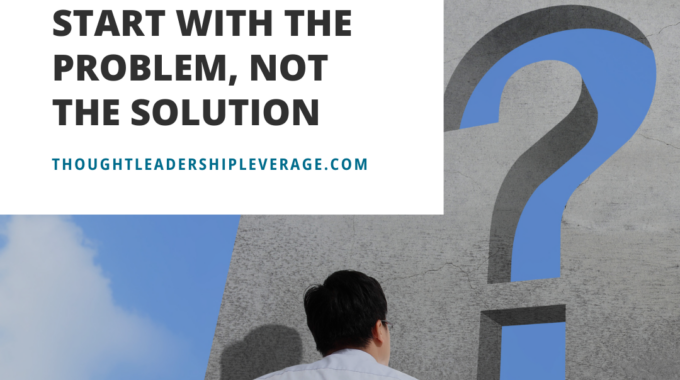Hey, thought leaders! I want to tell you about a powerful approach to thought leadership…
The Hard Way: “Can You Do a Workshop for Our Group?”
Many aspiring thought leaders find themselves running workshops early on. It can be a trap. Let’s look at how to make the most of this opportunity without getting bogged down.
It all begins when an aspiring thought leader generates their first powerful idea. They might write an article or blog, or perhaps deliver a talk at an event. People’s eyes light up with interest. Soon, someone comes up to them and says, “I love your ideas. Can you work with our group next month for a half-day session?”
At this point, most new thought leaders tell themselves. “I’m smart and I know my topic. If I can talk for an hour about it, surely I can deliver a workshop session!” The thought leader spends a couple of days—perhaps a weekend—building a presentation deck and some handouts. Voila! Instant workshop.

That’s a trap. Don’t be fooled into thinking a workshop is just a long speech. It requires a lot of up-front planning and good instructional design to create a workshop that engages learners and produces results. One common ratio from the ATD (the Association for Talent Development) says it takes forty hours of work just to produce one solid hour of workshop content. You can’t just throw some ideas together and call it “good enough.”
Workshops are very different than speeches.
They’re far more organized and focused on detail. They must take into account an interactive teacher-learner relationship, rather than relying on the one-sided oratory of a keynote. Yes, workshops should be entertaining and engaging, but a good workshop must move the needle on behavioral change. Did you workshop produce results? Did the organization see people acting differently when you were finished?
Good workshop design means having a strong framework, easy-to-memorize details, and real depth of content. The lessons must be constructive and tangible, and results should be measurable and easy to achieve. You need to encourage inductive thinking, inspire your learners to ask questions, and provide the tools they need to look for solutions on their own – after the workshop is over. Your audience is giving you their valuable time, and they expect to come away with information and learned skills that will bring about real change.
There are certain pieces of content that will probably always need to stay within the framework of speeches and keynotes. But when it comes to things like shared language, behavioral definitions, and other core concepts of change, we teach those things effectively through workshops and digital modalities. Focus on making your content simple, but deep; easy to memorize and understand but still offering a lifetime’s worth of insight.




